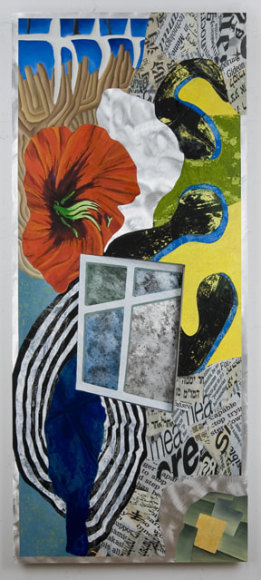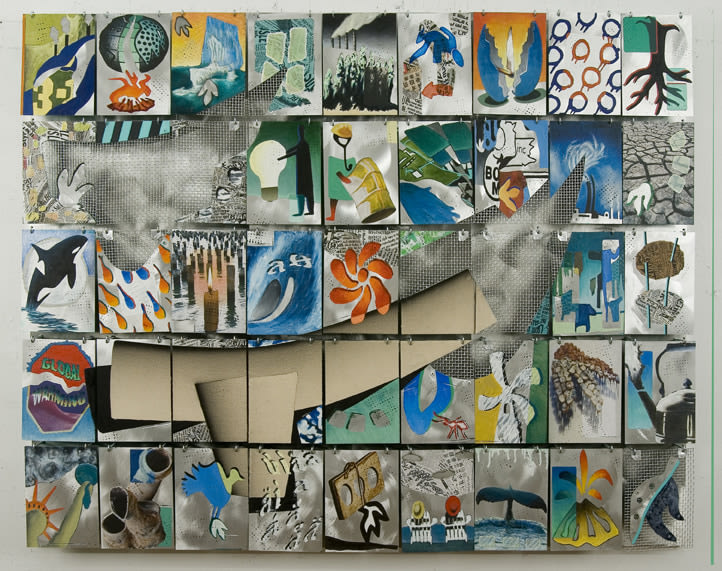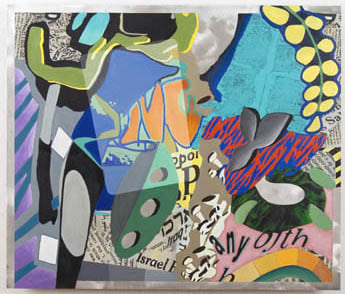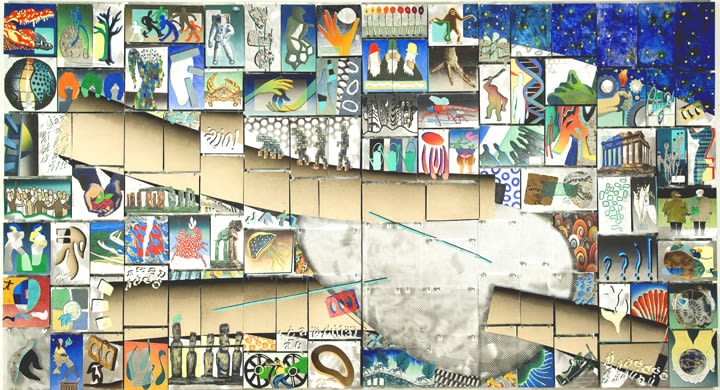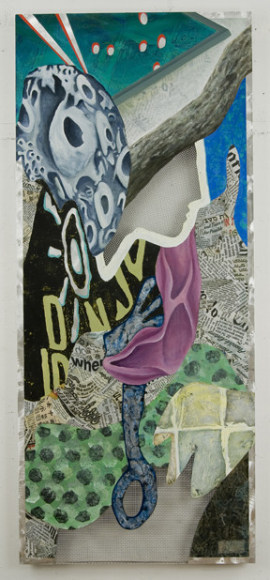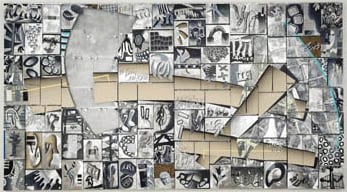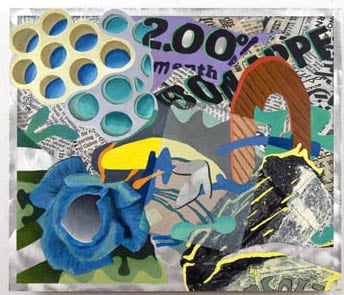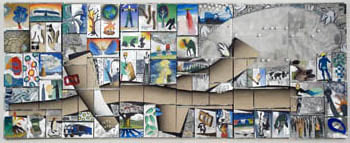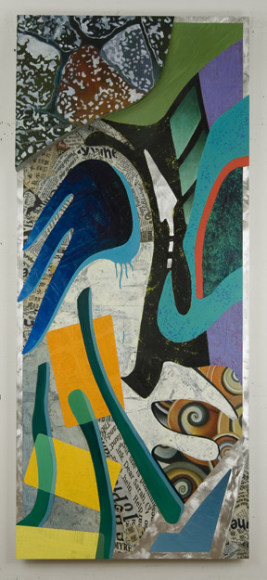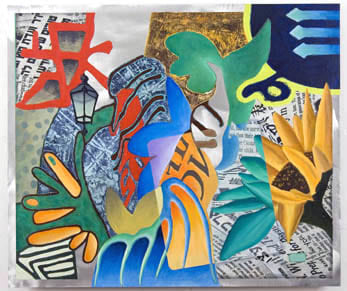Stux Gallery is pleased to present the work of the internationally established New York artist, Zigi
Ben-Haim. This will be the artist’s third solo exhibition at the Stux Gallery.
In this exhibition, Ben-Haim creates a new world that exists somewhere between abstraction and
representation. His iconography, which appears consistently throughout his work, references our
current state of environmental affairs: habitat loss, global warming and the squandering of nonrenewable
natural resources. At the same time, his images and dynamic spaces force viewers to
examine their own personal relationships within an atmosphere of urban experience.
The works on view are largely inspired by the artist's recent commission by NASA to pay tribute to
the Columbia space shuttle. Employing the grand scale of the universe, as well as our place as
individuals in it, Ben-Haim’s bold imagery and assertive colors suggest that we must be vigilant in
remembering our relationship between the world of nature and the man-made world. To address this
relationship, the artist has created a new visual language, a disparate grouping of elements that
represent the building blocks of life: leaves, bricks, ants, writing, fire, water, etc.
Melding these urban elements with those from his native home in the Middle East, Ben-Haim creates
multi-layered compositions that invite viewers to delve deeper, past the veneer of the works. Wire
mesh, aluminum panels, paper and collage all merge to create pieces as unified in their message as
they are in their visceral visual statement. The oscillation between the larger universe, invented forms
and our more immediate personal environments is a constant in Zigi Ben-Haim’s work, creating a
vivid sense of movement and contrast. These highly textured “sculptural paintings” are a testament,
not only to existence and survival, but also to Ben-Haim’s determination to create a universe within a
universe.
A fully illustrated color catalogue, titled INDUSTRIAL BAROQUE, will accompany the exhibition.
The catalogue includes an interview by Beth Wilson, a member of the International Art Critics
Association (AICA).

